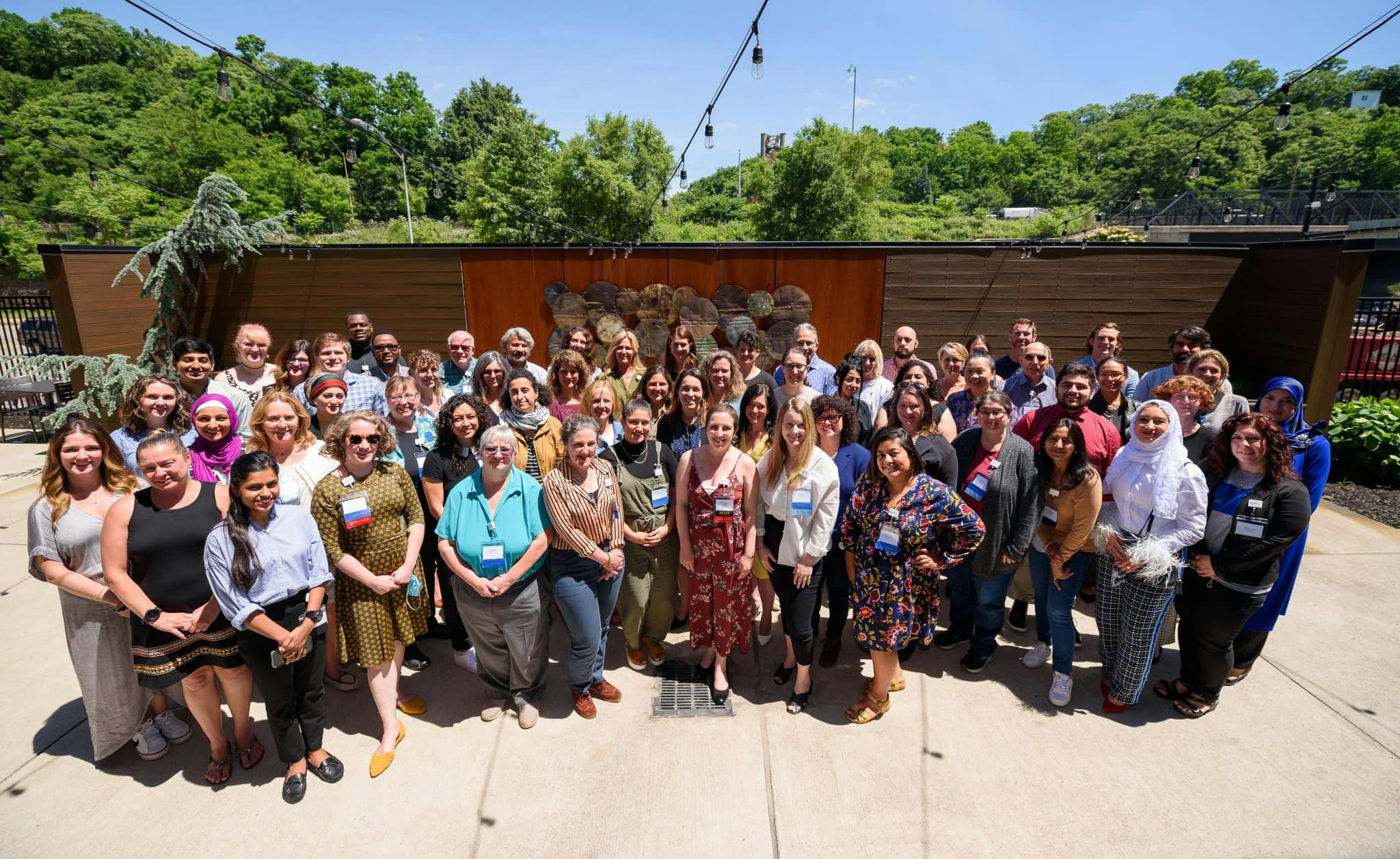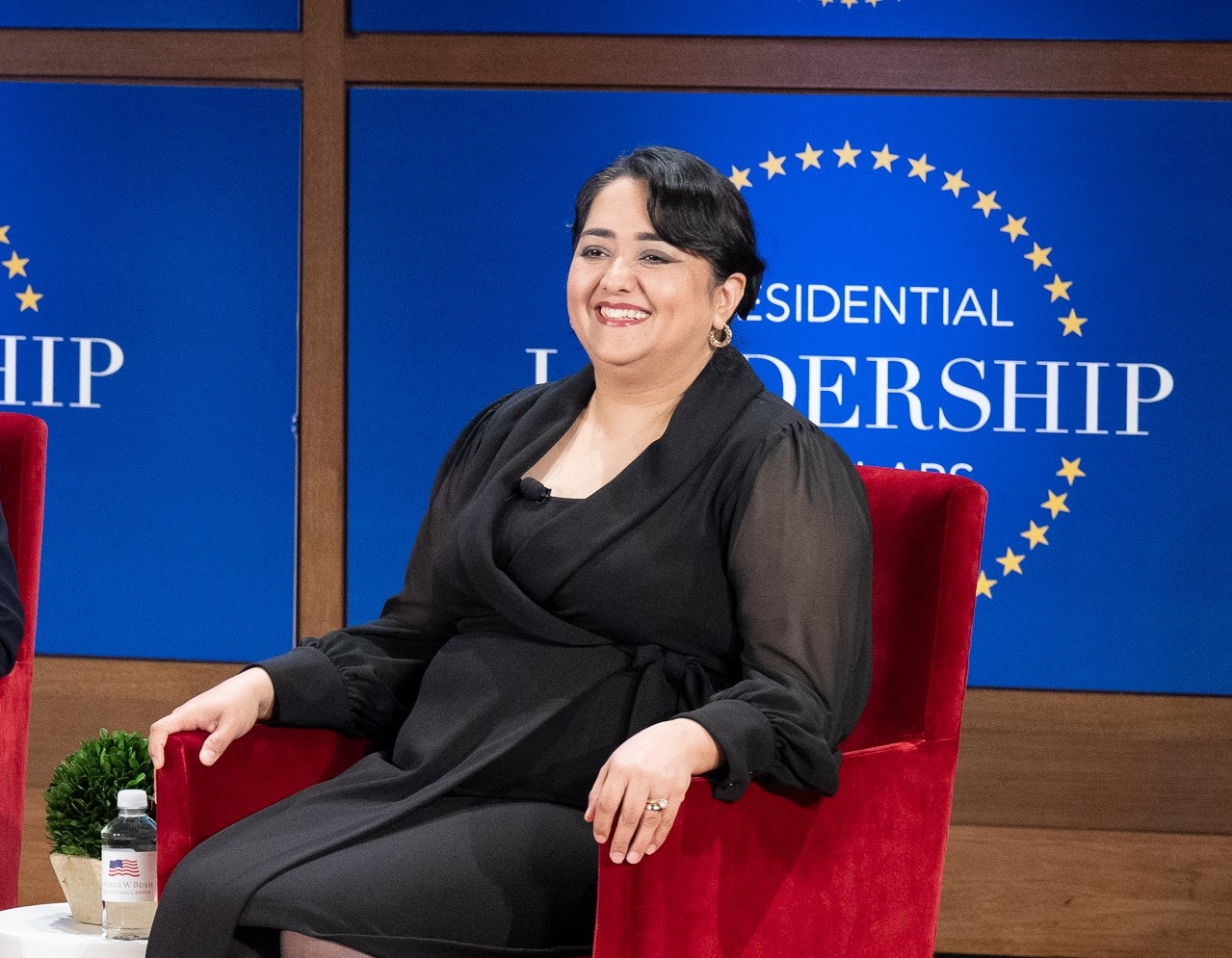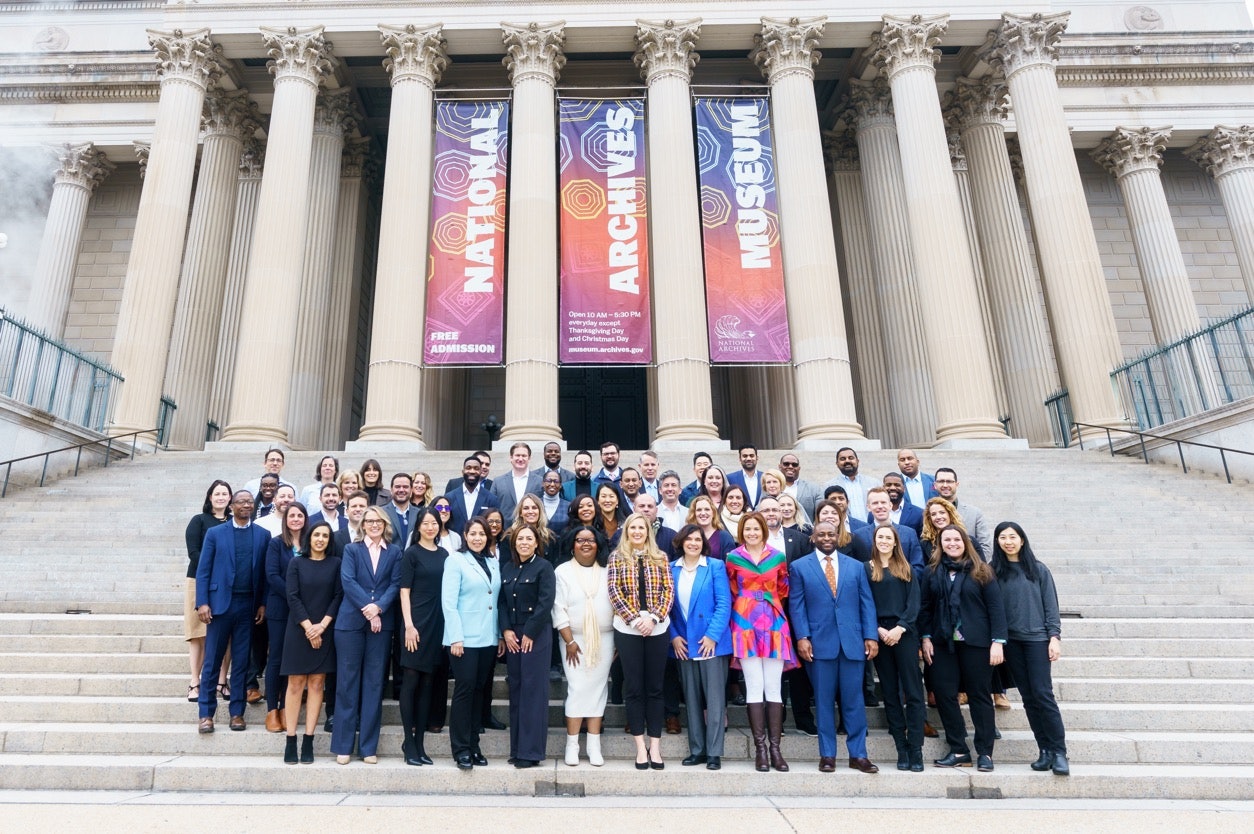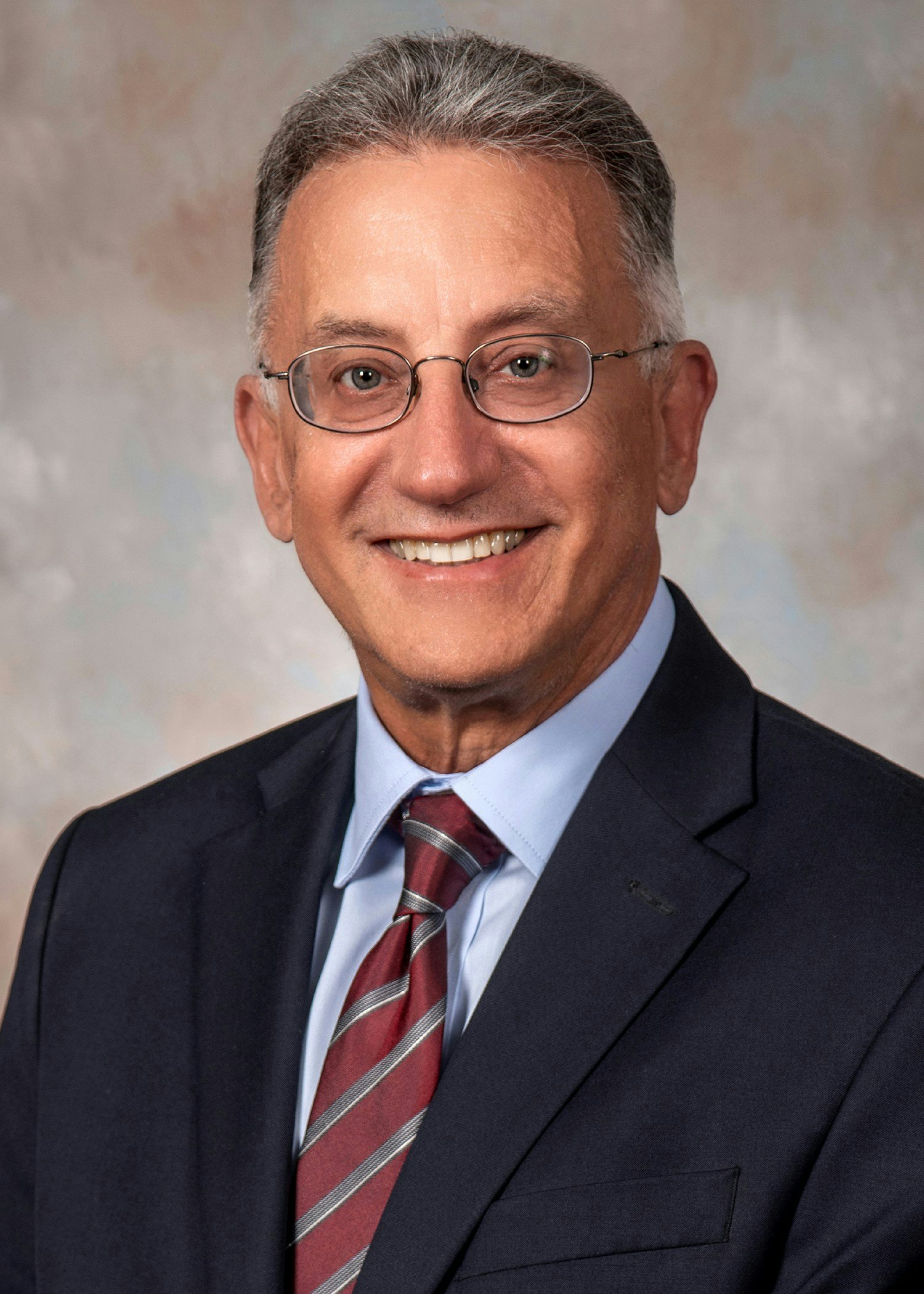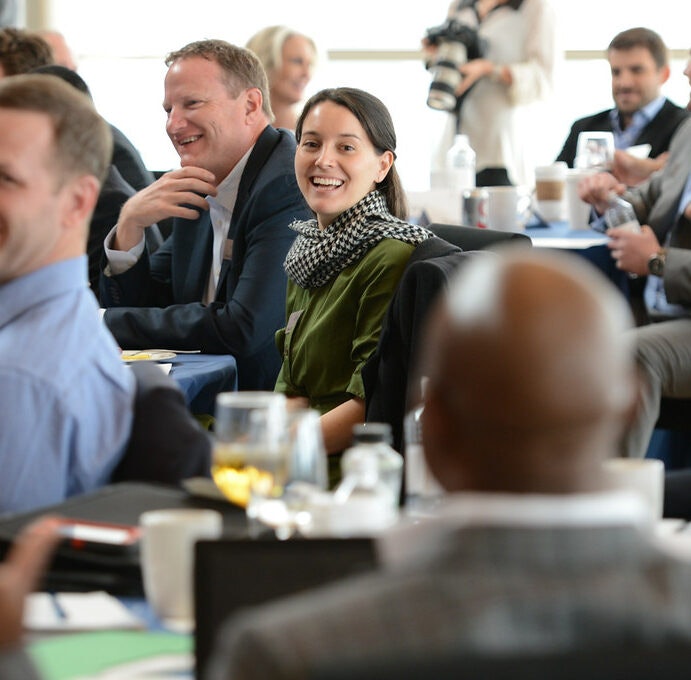Sloane Davidson is a 2020 Presidential Leadership Scholar and Founder and CEO of Hello Neighbor.
In the two years since Afghanistan’s fall, the United States has welcomed nearly 90,000 Afghans through Operation Allies Welcome (OAW), a historic government effort unseen before in this century.
We as a Nation have shown inclusive wraparound support from government, private philanthropy, local nonprofits, and individuals stepping up to help guide and support their new neighbors, something I bear witness to every day as the Founder and CEO of Hello Neighbor, a nonprofit I founded in 2017 that works to improve the lives of refugees and immigrants though mentorship, resettlement, and community-based programming. In Pittsburgh, we currently support over 500 new neighbors from more 26 countries of origin every month. We also have a national program, supporting community-based nonprofits in over 36 states with training, peer support, and grant funding to support new neighbors in their communities.
We now find ourselves at a pivotal juncture. Displacement and being forced to flee one’s home, family, and country create a deep wound and trauma. Rebuilding from scratch takes self-resilience and support.
Much is already being done, but there’s more work we can do.
Transforming words into action
Now, more than ever, our actions must align with our words. As individuals and as a society, we have the opportunity to shape the future of how we welcome new neighbors to the United States, and how we ensure their safety and pathway not only to survive but to thrive. An example of this is supporting the passage of the Afghan Adjustment Act, which protects our Afghan allies and alleviates obstacles that Afghans face when working toward a lawful road to permanent resident status. It’s also reaching out to local refugee resettlement agencies and grassroots nonprofits to offer housing or employment opportunities or to volunteer or become a donor. There are so many ways to contribute to create meaningful and tangible change within our communities.
Government’s commitment: Afghan Support Centers
In an era marked by urgent worldwide migration challenges, U.S. Citizenship and Immigration Services’ Afghan Support Centers are a beacon of hope. Seven cities across the country are holding four-day events this year to support Afghan neighbors. In Pittsburgh, we hosted an Afghan Support Center in July, and it served as a vital resource providing guidance and essential services to local Afghans. About 45% of the total Afghan population in Pittsburgh came to the event, and it was incredible to see the commitment to creating a welcoming environment for Afghan refugees and their families. Join at one of the additional Afghan Support Center events scheduled for Seattle, Oklahoma City, and Tulsa, or advocate for additional events to be planned in a city near you.
Private philanthropy’s transformative drive: Mobilizing America for Refugees Fund
The Mobilizing America for Refugees Fund serves as a conduit for individuals and private philanthropy to immediately and directly contribute to the massive undertaking of absorbing and welcoming Afghans into communities at unprecedented rates in a short period of time.
The Hello Neighbor Network served as the convener for this cohort with funding support led by The Starbucks Foundation, Schultz Family Foundation, Stand Together Foundation, and Welcome.US. The group distributed over $1 million among nonprofits across the country. It was, and is, an inspiring testament to the power of private philanthropy. Applications for nonprofits to join the Hello Neighbor Network are open through September 1, and new funding collaborators are coming together to support other key refugee and immigrant initiatives. You can get involved and apply by contacting the Hello Neighbor Network.
Grassroots empowerment: Connecting communities
Everyday Americans have also been inspired to act. For example, Vietnamese Americans who experienced their own mass migrations after the fall of Vietnam in 1975 created Viet for Afghans. (That year, 125,000 Vietnamese came to the United States to start over.) This community-driven approach not only bridges cultural gaps but also creates a shared sense of responsibility for the well-being and success of our Afghan neighbors. You can get involved by finding a community-based organization in your city or working with your church, synagogue, mosque, school, workplace, or any other community you are a part of to engage with your new neighbors.
What I’ve seen over the past two years reinforces my belief in communities’ enduring resilience and potential for transformation. By uniting the strengths of government, private philanthropy, and the passion of everyday Americans, we can continue to create a future for the displaced people of Afghanistan and be the kind of neighbors and Americans we say we want to be.

